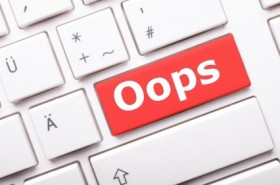It’s Mental Health Awareness Week. Email overload is a major cause of stress and hence poor well-being. Over the last few weeks there have been several interesting articles on different ways to reduce the stress which arises from business email overload and poor business email etiquette.
1. Forget sending an email, ask for a favour in person.
It’s often hard enough to pluck up the courage to ask someone for support for example cover whilst on leave, sponsorship etc. Recent research showed that people are 35 times more likely to say yes if asked face-to-face or by phone than by email. Perhaps not a surprising result given how emails can either be mis-interpreted or even lost in a full inbox. Stop stressing about when you will receive a response, go and walk and talk.
2.Stop playing email ping-pong.
Processing an email costs the average business about £.75 per email. Ten pointless rounds of email pong-pong is £7.50 down the sink. Played by ten pairs of employees at least five times a week – your business has now wasted the equivalent of £750 a week. Can you really afford to lose this much profit not to mention time and productivity?
3.Why working from home can still leave us stressed.
The CIPD found that although job satisfaction is up and work is more flexible than ever, one in three people are looking for a less stressful job. One significant source of stress being the feeling that you are always available and find it hard to switch off. Graduates and senior staff being most at risk. The question is why and who is making these demands on your time? Often no one – they are self inflicted. Top three solutions, set your own boundaries, find the off-button or have a second mobile device for personal use. If none of these work – peel some potatoes!
4.Sleepless couples swap pillow talk for a nightcap.
Email and sleep deprivation remains a significant problem according to the latest research from the Sleep Council. Emailing late at night continues to disrupt our sleep patterns. as worrying is the fact that those turning to alcohol is up by 10% over the past few years.
5.People whose glass is always half-empty are very draining.
Not specifically about email but there is an underlying message on business email etiquette. Make sure your emails are positive even when the news is bad. Always, try to pick out one up-side.
6.How to reduce the pressures at work.
Although this wide ranging article is aimed at accountants, it contains some very useful tips for us all about how to handle increasing workloads but reduce the associated stress. On the email side the key suggestion is to deal with email in batches instead of being constantly interrupted. Where have you heard that before? If you must see emails from key people then write a rule which alerts you to only these emails.(About 1.5 minutes in on this video).
7.How to get post Blackberry Blackberry. For those still depressed over the demise of the Blackberry, there is hope of a shinny new version. Just take care that you are not feeding your email addiction.
Tags: After hours email, Blackberry, business email etiquette, Business email management, Email and sleep deprivation, email overload, Email ping-pong, email stress, Mental Health Awerness Week
Mesmo Consultancy is delighted to announce nominations are now being accepted for the 2017 World Email Ping-Pong Challenge. Email ping-pong is a ‘game’ played by millions of employees every day who send pointless emails back and forth instead of picking up the phone. But we digress – we want to find out who are the world’s best email ping pong players.
Have you been in an endless round of email exchanges or spotted a ping pong email game between two people which goes nowhere and often spirals out of control. How many emails did it involve and over how many days/weeks did it last? Tell us what is the longest round of email ping pong you have ever played or spotted? Gold, Silver and Bronze medals will be awarded and for the best two responses a copy of either ‘Brilliant Email’ or ‘Taking Control of Your Inbox’.
Please send your nominations either via email or leave your comments on this blog.
Email ping-pong is symptomatic of our addiction to email and poor business email etiquette. Often we forget to use other forms of communication which could be more efficient and solve the problem more quickly, for instance the phone or a face-to-face conversation (live or by video-link).
In January 2017 DMR stats reported that 269 billion emails are sent daily. In 2016 The Huffington Post reported that the average worker spends 6.3 hours a day on their email and The Economist highlighted that processing an email costs the average business just under $1 per email. So ten pointless rounds of email pong-pong means $10 down the sink. Played by ten pairs of employees at least five times a week – your business has now wasted the equivalent of $500 a week. Can you really afford to lose this much profit not to mention time and productivity lost?
Want to bow out of the World Email Ping Pong Challenge to improve performance and reclaim all this lost time and money? Then watch our latest Business Email Etiquette video on how to stop email ping-pong.
Here is a classic email Ping Pong Game in Action
This email ping pong chain is already 12 messages long, and it will start a new ‘set’ with Zack…
If you want to save even more time managing email more efficiently why not call us now about our Brilliant Email Management workshops or buy yourself a copy of either Brilliant Email or Taking Control of Your Inbox.
Tags: Brilliant Email, business email etiquette, DMR Stats, Email ping-pong, Huffington Post, Mesmo Consultancy, Save time dealing with email, Taking Control of Your Inbox, The Economist
Fed up with endless rounds of email ping-pong going no where? Watch video number four of Mesmo Consultancy’s new series on Business Email Management and Etiquette: top tips to stop playing email ping-pong.
First, these top tips will help you improve business and personal performance and productivity. Second, stopping playing email ping-pong will enable you to reduce email overload and improve well-being.
Tags: business email etiquette, Business email management, email overload, Email ping-pong, Mesmo Consultancy, Save time dealing with email
Hilary Clinton used a personal email account rather than her White House one. Now 10 Downing Street admits to automatically deleting its emails after 90 days. As a result some are suggesting that instant electronic messaging systems which self-destruct are the solution like SnapChat and Slack. But are they?
For any technology to succeed and add value to the business, requires that users are properly trained. Sadly though, normally 80% of our time and budget is spent on the technology and its implementation and only 20% on providing the user with adequate skills to use it properly.
How many of you have ever been educated to mange your use of email, little own deploy good email etiquette which would reduce the need to email ping-pong and email gaffs. In Mesmo Consultancy’s experiences it is less that 20%. So little wonder we often find ourselves confronted with consequences of an email we wish we had never sent.

Email disasters
It is naive to think that we can delete an email. Once sent it is there for ever, either stored on a server as News International and Sony Corporation found to their dismay, or still in the recipient’s inbox. Far better is to adopt slow and quiet email. Think before hitting send. Reflect and ask yourself ‘what if someone found this email’.
Without proper training and a change in organisational culture instant electronic messaging communications systems (like Slack and SnapChat) will be doomed to the same failure and disasters as our current version of email.
Need help to change your email culture to make it work for, rather than against you? Call Mesmo Consultancy to hear how our email training has has helped others. Alternatively, watch our video on email etiquette.
Tags: 10 Downing Street, Deleting emails, email culture, email etiquette training, Email gaffs, Email ping-pong, Email training, Hilary Clinton, Mesmo Consultancy, News International, Slack, SnapChat, Sony Corporation